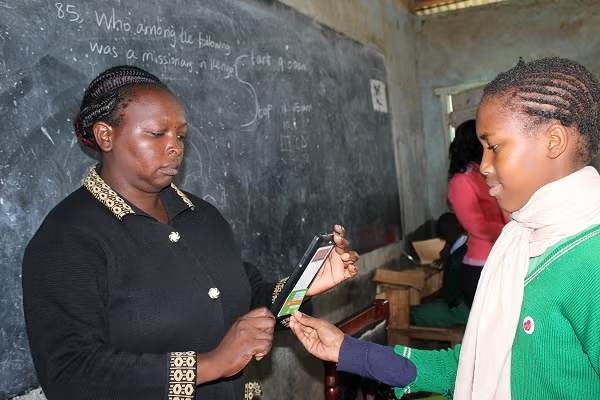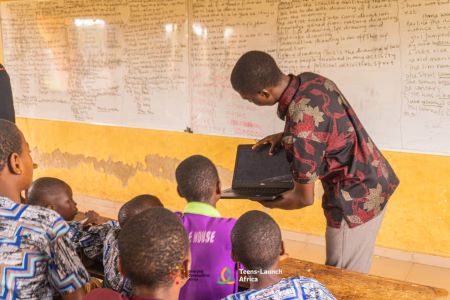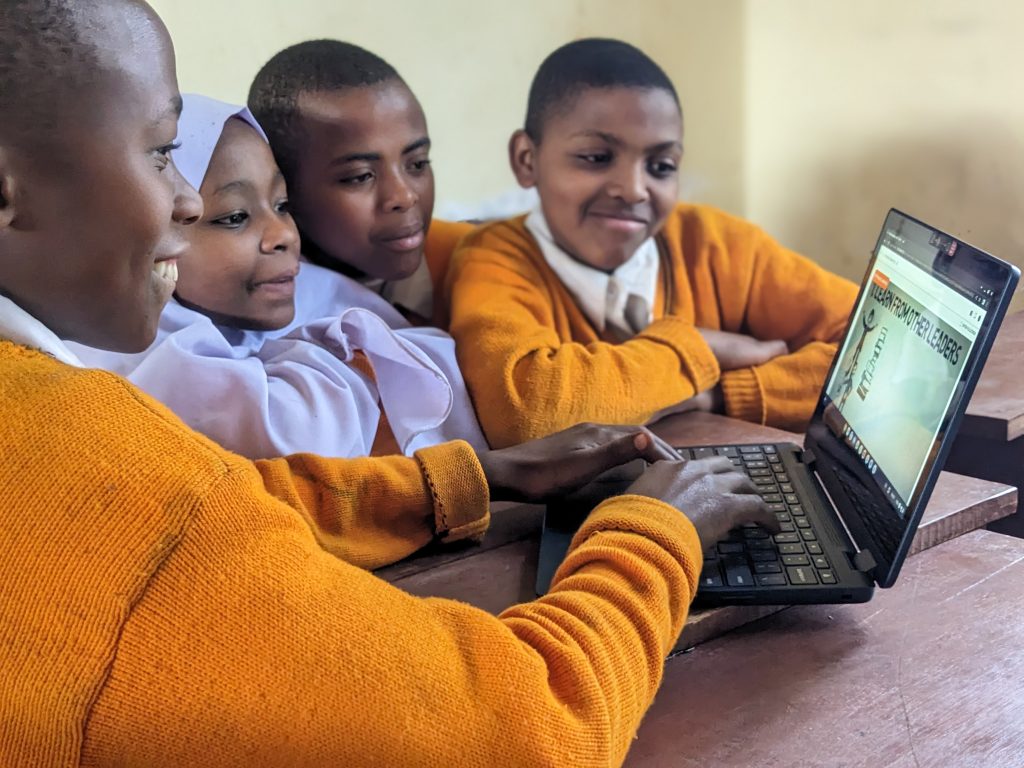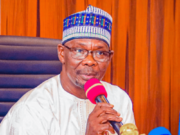In recent times, a quiet yet seismic shift is unfolding across the African continent. Equipped with mobile phones, tablets and inexpensive computing devices, millions of Africans are beginning to engage with the digital world in ways that promise transformative change. But the real turning point is not simply access—it is Digital Literacy. This emerging skill is proving to be the spark that may well usher Africa into its next revolution. Indeed, understanding Why Digital Literacy Is Africa’s Next Revolution is key to appreciating the continent’s future trajectory.
Table of Contents

The Digital Literacy Divide: Access vs Competence
We have seen decades of progress in network coverage and device uptake. For example, more than 480 million mobile money accounts now exist across Africa—surpassing other developing regions combined. And UNESCO statistics show that up to 84% of Sub‑Saharan Africans live in areas with mobile broadband coverage, yet only around 25% actually access the internet, according to a report by Africa.com.
This gap reveals an uncomfortable truth: access is necessary, but not sufficient. What truly matters is the ability to use digital devices, understand applications, judge online content, and navigate digital platforms safely and effectively.
The Rise of the Digital Revolution in Africa
Africa’s population is strikingly youthful—Nigeria alone has a median age of only 18, with nearly 70% under 30. This demographic is already the engine of digital change, demanding more from education systems and aspiring entrepreneurs alike. At forums such as the Africa Youth Forum in Nairobi, young people called for deeper engagement, pointing out that poor digital access and weak education systems are key barriers to their full potential.
Meanwhile, new grassroots movements like Tech Herfrica demonstrate the power of digital inclusion. Founded in Nigeria in 2023, this NGO provides rural women with digital and financial literacy training, mobile devices, market information and access to e‑commerce platforms—all in indigenous languages. Their model has raised beneficiary incomes by up to 50% on average

Digital Literacy: The Gateway to Economic Mobility
What exactly will drive Africa’s next revolution? Companies, NGOs and governments believe the answer lies in nurturing Digital Literacy. The Nigerian government’s NITDA Digital States Initiative aims to train around 20,000 young people nationwide in digital marketing, productivity tools and online content creation—all grounded in digital literacy fundamentals.
Likewise, across several countries, Huawei‑supported “DigiTrucks” travel to rural Kenya to provide mobile digital training labs, teaching both young students and teachers how to use software, VR and connectivity tools. In just one project, more than 22,000 training hours were delivered to 1,300 people across 13 counties.
Why does this matter? Because digital literacy enables individuals to participate in the broader digital economy—to use mobile banking, participate in e‑commerce, engage civic tools, learn new skills online, and even protect themselves against misinformation.
Digital Literacy vs Disinformation: A Matter of Trust
As internet use grows, so does the risk of misinformation. From Ghana to Nigeria, electoral disinformation and misleading political content have cost trust in media and democratic processes. To fight this, networks such as Code for Africa train journalists and citizens in data journalism, fact‑checking, and spotting AI‑driven propaganda. Media literacy and basic digital literacy equip people to distinguish credible information from manipulation.
Leapfrogging Development with Digital Literacy
Africa has always aimed to leapfrog stages of development via innovative technology adoption. Mobile money services like M‑Pesa in Kenya have allowed users—even in places without banks—to pay bills, save and transact using only a phone, according to aljazeera.com. But without digital literacy, users cannot benefit fully from such services. Knowing how to access, trust, and securely manage one’s account is digital literacy in action.
Moreover, AI platforms are emerging as game‑changers. A recent study in Sierra Leone showed teachers preferred low‑data AI chatbot responses over web search results, citing lower data cost, greater relevance, and better accuracy. These tools can only succeed if users have the digital literacy to interact with them effectively.
A Pan‑Continental Framework Emerges
African governments and institutions are waking up to the importance of digital‑skills policies. The Africa Technology Policy Tracker, launched by Carnegie Africa and the African Telecommunications Union, now monitors laws, cybersecurity measures and digital governance frameworks across the continent. South Africa even inaugurated a national Digital Literacy Day in October 2024, partnering with UNESCO to highlight media and information literacy across communities.
These steps mark broader recognition of digital literacy as a foundational competency, essential not only for economic growth but also social stability, democratic participation, and innovation.
Challenges and Roadblocks
Despite enthusiasm, the fight for digital literacy faces real hurdles. Internet use remains low—only about 37% of Sub‑Saharan Africans actually use the internet despite wide coverage, according to Apnews.com. In rural areas, only 23% of residents use it compared to 64% in cities, and women are much less likely to be online than men. High device costs, language barriers, poor infrastructure in intermediary cities, and limited teacher training continue to hold back progress.
Cybercrime and digital repression are another concern: as connectivity expands, so too do phishing schemes, scams, and government surveillance efforts, especially during elections. Nigeria and Zimbabwe have both experienced spikes in cyberattack activity.
The Human Face of Digital Literacy
Back in Nigeria, the Governor of Taraba State, Agbu Kefas, emphasises the importance of embedding technology within education. He introduced a student tracking system (TESIS) to monitor attendance and improve accountability in schools, and embedded technology training from primary through secondary schools as part of educational reform. He affirms that Digital Literacy is not merely a soft skill, but a core requirement for future agency.
Similarly, grassroots efforts like those of Tech Herfrica show that digital literacy initiatives can transform lives—especially for marginalised women in rural areas, where digital tools enable them to access markets, business information and financial resources that were previously out of reach.
Why Digital Literacy Is Africa’s Next Revolution
- Catalyst for entrepreneurship: Digital literacy allows young Africans to start businesses online, market services, and connect to e‑commerce platforms—even from rural villages.
- Digital inclusion and equity: With digital literacy training delivered in local languages and tailored to women and marginalised groups, inclusion becomes possible.
- Government service delivery: Digital literacy enables citizens to access health, education and agricultural services online, improving reach and effectiveness.
- Resilience to disinformation: Literate digital citizens are better equipped to navigate misinformation, strengthening democracy.
- Leapfrogging development: From mobile money to AI learning tools, digital literacy helps Africans bypass legacy infrastructure roadblocks.
Country Examples and Success Stories
- In Kenya, DigiTrucks bring VR and laptop-based learning to remote areas. Thousands have gained tech-savvy skills they lacked before.
- Nigeria’s NITDA initiative is training tens of thousands in digital marketing, content creation and productivity tools, laying a foundation for digital entrepreneurship.
- Tech Herfrica empowers rural women across Nigeria, Ghana, Kenya, Uganda, Rwanda and Tanzania with digital literacy, financial skills and online markets—boosting incomes and breaking traditional barriers.

Key Policy Recommendations
- Scale rural training centres: Digital literacy must move beyond cities; fibre‑optic and mobile services must be coupled with accessible training.
- Local‑language content: Training delivered in indigenous languages makes digital skills relevant and inclusive.
- Partnerships with NGOs and tech firms: Collaborative schemes like Code for Africa and Tech Herfrica amplify reach.
- Cybersecurity and media literacy: As more Africans go online, teaching safe use and critical evaluation is vital.
Looking Ahead
If today’s generation of African policymakers, educators, tech entrepreneurs and NGOs can unify around digital literacy as the core enabler of inclusion, economic growth and self‑determination, they will justify the phrase Why Digital Literacy Is Africa’s Next Revolution. The shift from passive content consumption to informed, skilled digital participation will elevate societies and economies across the continent.
Africa stands at the threshold of real change. But it is not the mobile phone alone that will usher in that change—it is how well users are equipped to wield it. Once millions more Africans gain Digital Literacy, they unlock markets, health care, employment, civic participation and innovation previously beyond reach. That, more than anything else, is the seed of the continent’s next revolution.
Join Our Social Media Channels:
WhatsApp: NaijaEyes
Facebook: NaijaEyes
Twitter: NaijaEyes
Instagram: NaijaEyes
TikTok: NaijaEyes








































